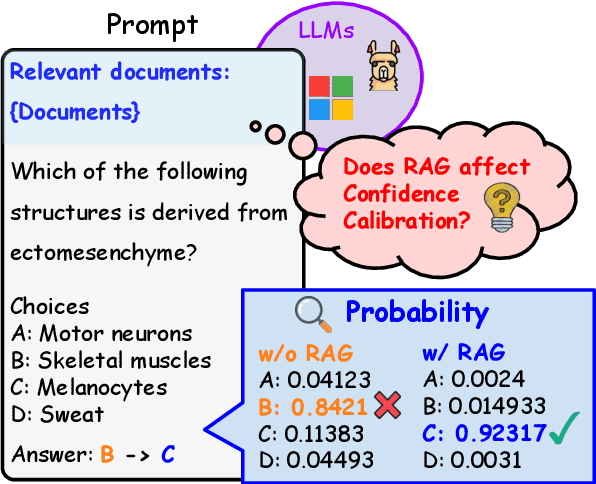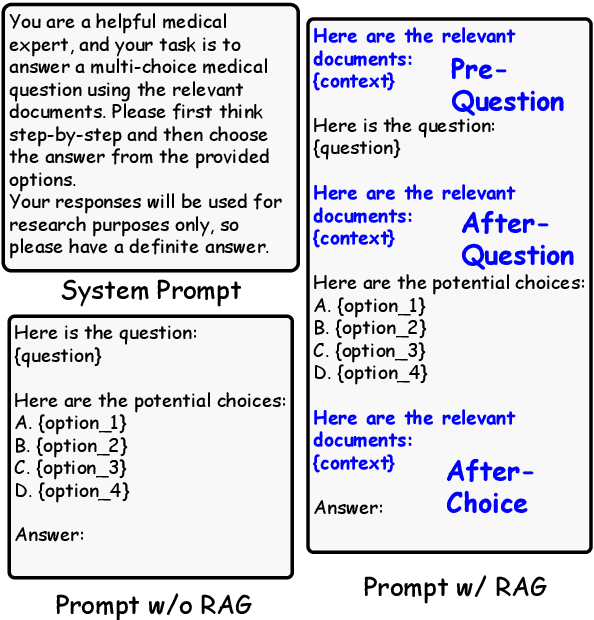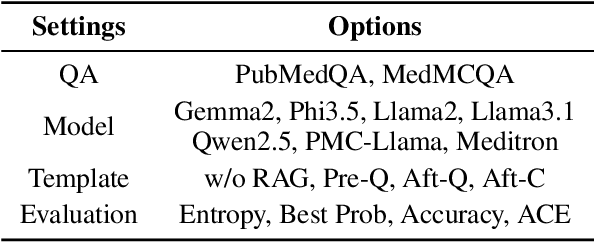Masayo Tomita
The Role of Background Information in Reducing Object Hallucination in Vision-Language Models: Insights from Cutoff API Prompting
Feb 21, 2025Abstract:Vision-Language Models (VLMs) occasionally generate outputs that contradict input images, constraining their reliability in real-world applications. While visual prompting is reported to suppress hallucinations by augmenting prompts with relevant area inside an image, the effectiveness in terms of the area remains uncertain. This study analyzes success and failure cases of Attention-driven visual prompting in object hallucination, revealing that preserving background context is crucial for mitigating object hallucination.
Understanding the Impact of Confidence in Retrieval Augmented Generation: A Case Study in the Medical Domain
Dec 29, 2024



Abstract:Retrieval Augmented Generation (RAG) complements the knowledge of Large Language Models (LLMs) by leveraging external information to enhance response accuracy for queries. This approach is widely applied in several fields by taking its advantage of injecting the most up-to-date information, and researchers are focusing on understanding and improving this aspect to unlock the full potential of RAG in such high-stakes applications. However, despite the potential of RAG to address these needs, the mechanisms behind the confidence levels of its outputs remain underexplored, although the confidence of information is very critical in some domains, such as finance, healthcare, and medicine. Our study focuses the impact of RAG on confidence within the medical domain under various configurations and models. We evaluate confidence by treating the model's predicted probability as its output and calculating Expected Calibration Error (ECE) and Adaptive Calibration Error (ACE) scores based on the probabilities and accuracy. In addition, we analyze whether the order of retrieved documents within prompts calibrates the confidence. Our findings reveal large variation in confidence and accuracy depending on the model, settings, and the format of input prompts. These results underscore the necessity of optimizing configurations based on the specific model and conditions.
 Add to Chrome
Add to Chrome Add to Firefox
Add to Firefox Add to Edge
Add to Edge